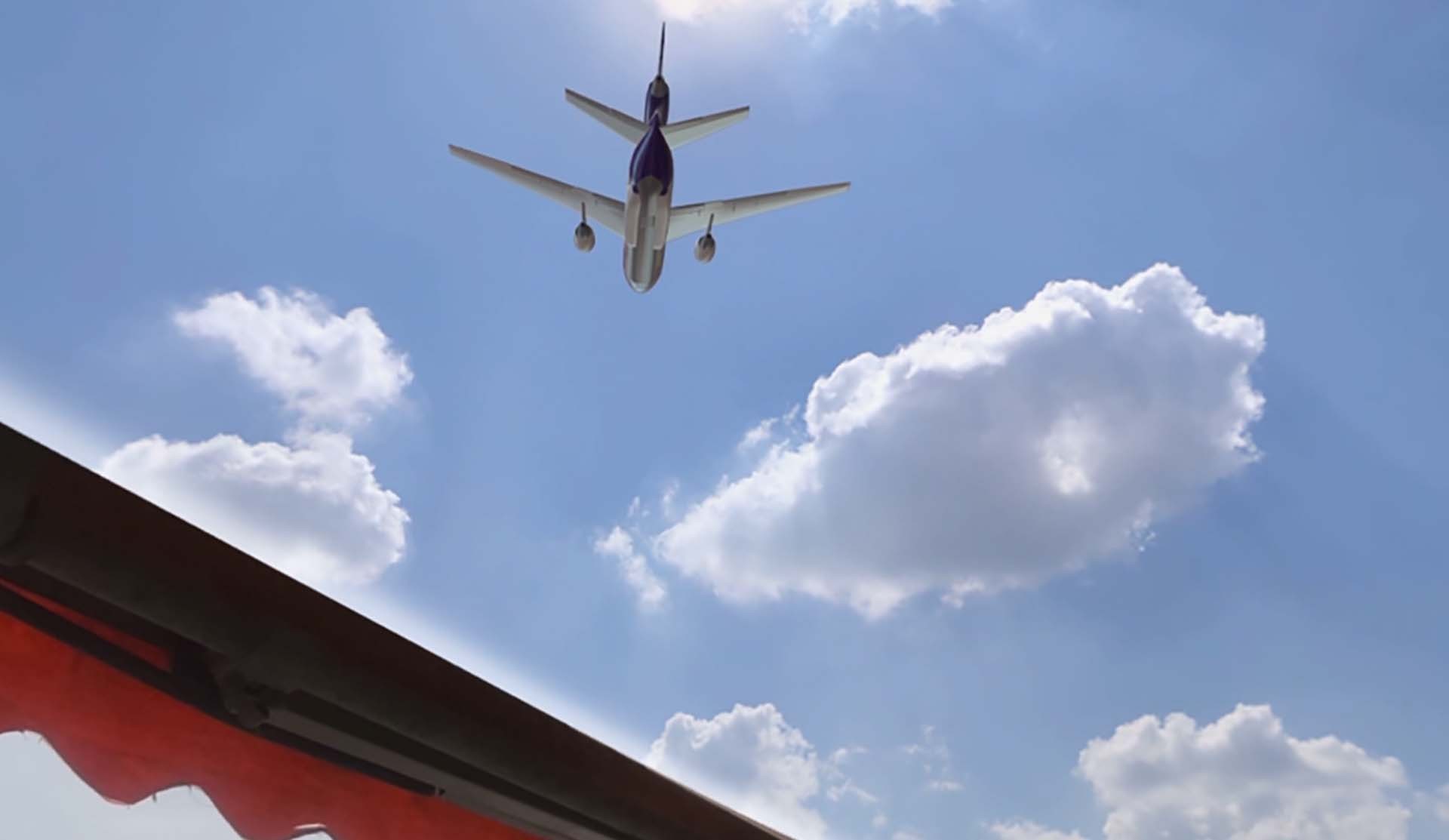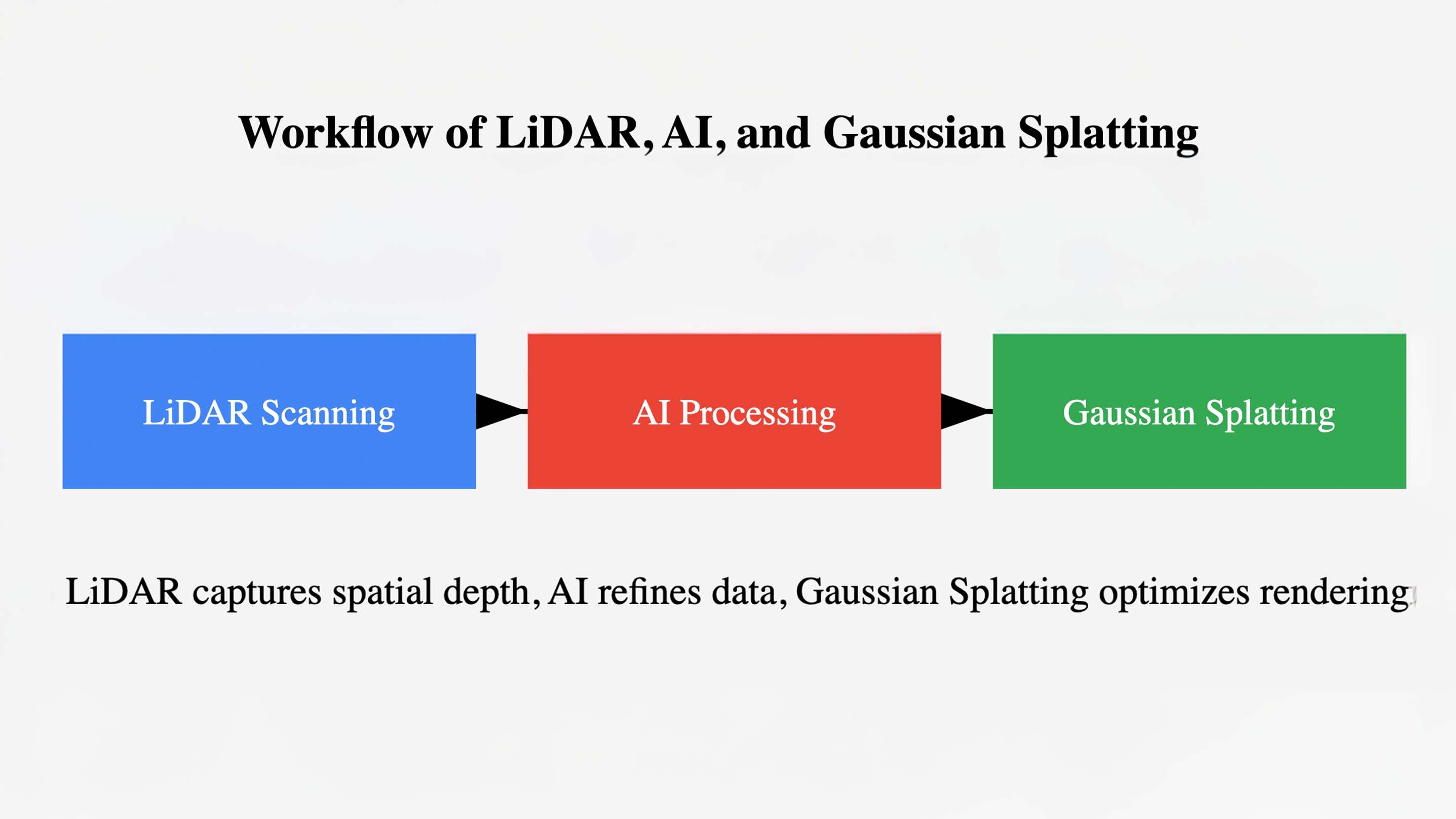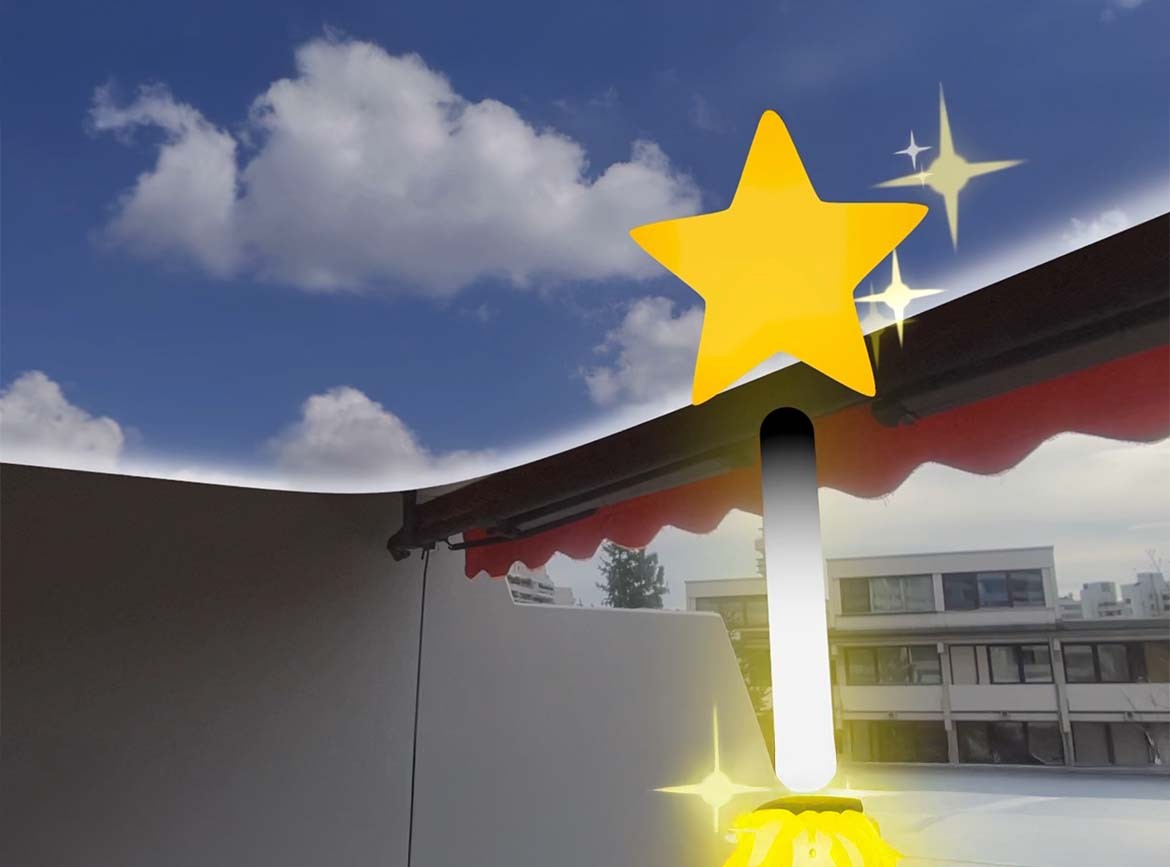The Magic of Real-Time 3D Photometry – LiDAR, AI, and Gaussian Splatting
Visualization: © Ulrich Buckenlei
The Future of Real-Time 3D Capture
By leveraging LiDAR, Artificial Intelligence (AI), and Gaussian Splatting, a new dimension of 3D digitization is emerging. These technologies enable high-resolution, dynamic representations of real-world environments with unprecedented precision.
- High-Precision Depth Mapping: LiDAR scans environments in real time.
- AI-Powered Photometry: AI enhances light and material simulations.
- Efficient Gaussian Splatting: Enables realistic, dynamic renderings.

Real-Time 3D Capture with LiDAR and AI
Photo: © XR Stager | LiDAR-powered depth scans enable precise spatial representations.
These advancements are already transforming multiple industries, including augmented reality, architecture, and automation.
Neural Networks and Gaussian Splatting
Gaussian Splatting is an innovative rendering technique that replaces traditional 3D models with highly optimized point clouds. Combined with AI and LiDAR data, it creates a new form of immersive, photorealistic visualization.
- Neural Networks: AI processes and enhances scan data.
- Point Cloud Rendering: Real-time visualization through Gaussian Splatting.
- Optimized Performance: Lower computational load compared to classic 3D models.

Neural Networks in 3D Modeling
Photo: © DeepMind | The combination of these technologies enables ultra-realistic 3D scenes.
This technique is already successfully used in simulations, digital twins, and mixed-reality applications.
Diagram: Workflow of LiDAR, AI, and Gaussian Splatting
The following diagram illustrates the process from LiDAR capture to AI-powered optimization and final visualization.
- Step 1: LiDAR scans the environment.
- Step 2: AI enhances light and material properties.
- Step 3: Gaussian Splatting enables efficient visualization.

Workflow of LiDAR, AI, and Gaussian Splatting
Source: DeepMind Research (2024), MIT Media Lab (2025).
Through this combination, highly detailed 3D models can be generated in real time.
Diagram: The Workflow of LiDAR, AI, and Gaussian Splatting
This diagram illustrates the complete workflow for generating 3D content from LiDAR data—from initial depth scanning and AI-driven photometry to Gaussian Splatting for real-time visualization in AR/VR.
- LiDAR Depth Scanning: Laser-based distance measurement for environment capture.
- AI Photometric Analysis: Neural networks enhance texture, lighting, and depth representation.
- Gaussian Splatting: Efficient point cloud rendering for realistic visualization.
- AR/VR Real-Time Rendering: Final representation in immersive applications.

Workflow of LiDAR, AI, and Gaussian Splatting
Source: DeepMind Research (2024), MIT Media Lab (2025).
This workflow enables highly realistic 3D scenes in real time and represents one of the most significant innovations in immersive technology. The combination of these approaches opens new possibilities for architecture, industry, and entertainment.
Video: LiDAR and AI in Action
The video showcases the practical application of LiDAR scanning and Gaussian Splatting.
This technology paves the way for advanced AR and VR applications.
Invitation to Collaborate
The Visoric Expert Team develops innovative AR and 3D solutions. Let’s shape the future together.
- Consulting: Optimal 3D technologies for your business.
- Development: Tailor-made AR and VR applications.
- Integration: LiDAR, AI, and Gaussian Splatting for innovative projects.
Contact us today!
Contact Persons:
Ulrich Buckenlei (Creative Director)
Mobile: +49 152 53532871
Email: ulrich.buckenlei@visoric.com
Nataliya Daniltseva (Project Manager)
Mobile: +49 176 72805705
Email: nataliya.daniltseva@visoric.com
Address:
VISORIC GmbH
Bayerstraße 13
D-80335 Munich


